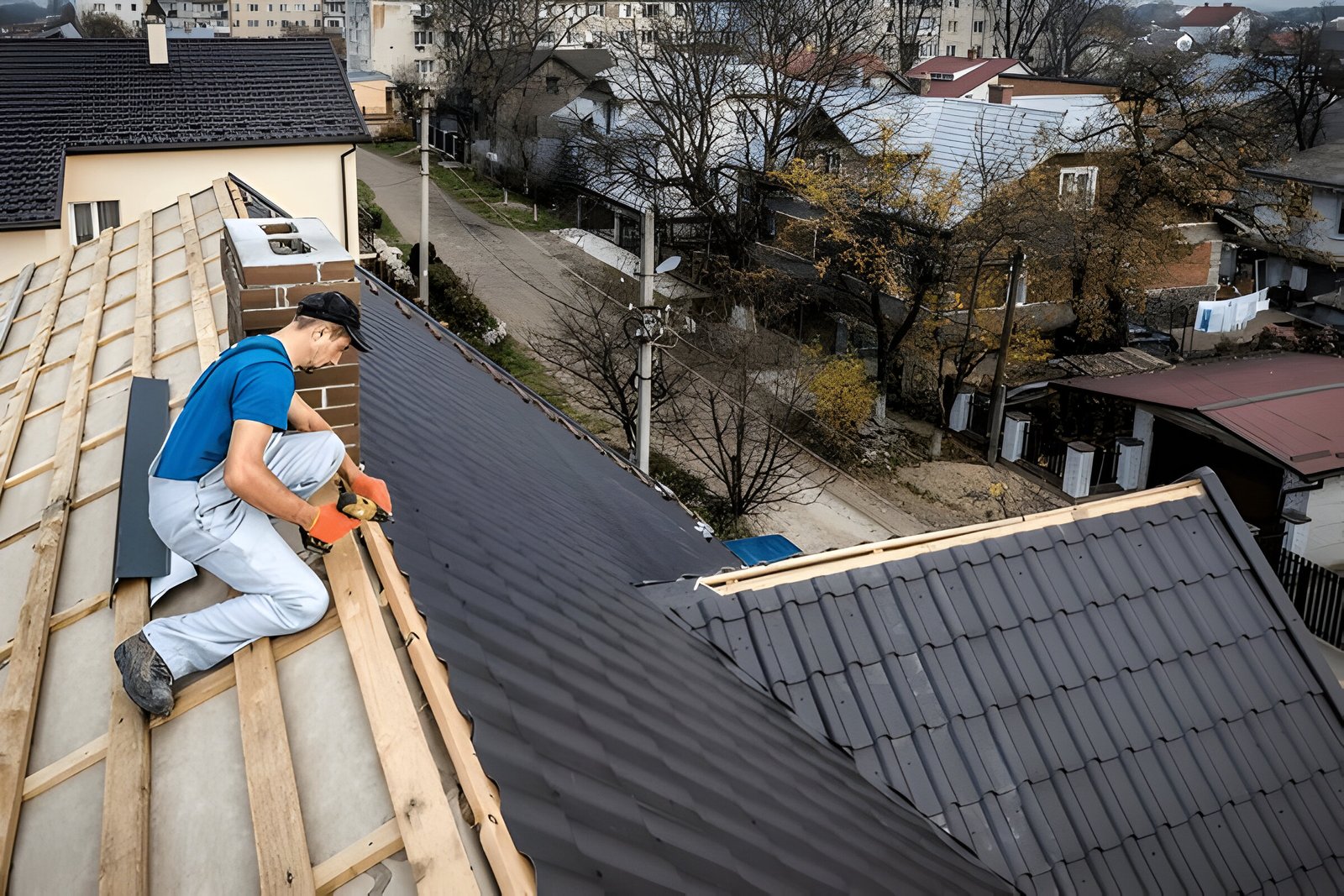When it comes to roofing materials, metal roofs have gained significant popularity due to their durability, aesthetic appeal, and long-term cost-effectiveness. However, choosing the right metal roof for your home involves careful consideration of various factors ranging from material types to color options.
Types of Metal Roofing Materials

One of the first decisions you'll need to make is selecting the type of metal roofing material. Common options include:
Steel Roofing
Steel is one of the most popular choices for metal roofing due to its strength and versatility. It often comes with a protective coating of zinc (galvanized) or a mixture of aluminum and zinc (Galvalume) to enhance its durability and resistance to rust.
Aluminum Roofing
Aluminum is lightweight and highly resistant to rust, making it an excellent choice for homes in coastal areas prone to salty air. It’s also highly reflective, which can help in reducing energy costs by keeping your home cooler.
Copper Roofing
Copper roofs offer a unique aesthetic appeal, turning a distinctive green patina over time. While copper is more expensive than other metal roofing materials, it is incredibly durable and can last for a century or more with proper maintenance.
Zinc Roofing
Zinc is known for its self-healing properties, as it can naturally repair scratches and minor imperfections over time. It also forms a protective patina, which helps in preventing corrosion. However, zinc roofing comes with a higher price tag.
Styles and Profiles of Metal Roofing
Metal roofs come in various styles and profiles, each offering a unique look and performance characteristics.
Standing Seam
Standing seam metal roofs feature vertical panels with clean lines and concealed fasteners, providing a modern and sleek appearance. This style is known for its superior weather-tightness, making it suitable for areas with heavy rainfall or snow.
Metal Shingles
Metal shingles mimic traditional roofing materials such as wood, slate, or asphalt. They offer the aesthetic appeal of these materials but with the added benefit of metal's durability and longevity.
Corrugated Metal
Corrugated metal roofs are characterized by their wavy or ribbed pattern. They are typically used in agricultural or industrial buildings, but recent design innovations have made them a viable option for residential purposes as well.
Assessing Your Roof’s Slope and Complexity
The slope and complexity of your roof can significantly influence the type of metal roofing best suited for your home.
Low Sloped Roofs
For roofs with a low slope, standing seam panels are often recommended due to their excellent water-shedding properties. It’s essential to ensure a watertight installation to prevent leaks.
Steep Sloped Roofs
Homeowners with steeply pitched roofs can opt for various styles, including metal shingles, shake, or tile. These options not only provide the necessary water runoff but also enhance the architectural appeal of your home.
Complex Roof Designs
If your roof features multiple valleys, skylights, or intricate architectural elements, it's crucial to enlist a more experienced contractor to ensure proper installation. For these complex setups, standing seam systems are often the best choice due to their design flexibility and superior sealing capabilities. To find the right expertise for your project, it’s a good idea to contact residential metal roof contractors who specialize in such intricate installations, ensuring that your roof performs optimally and stands the test of time.
Understanding Metal Roof Coatings and Finishes
The longevity and appearance of your metal roof are also influenced by the type of coating and finish applied.
Paint Coatings
Polyester and acrylic paints are commonly used to coat metal roofs. These paint finishes come in a variety of colors and can significantly enhance the roof's visual appeal. High-performance coatings such as Kynar 500 offer excellent UV and weather resistance, ensuring the colors remain vibrant for years.
Bare Metal Finishes
Some homeowners prefer the natural look of uncoated metal, especially with materials like copper and zinc that develop a patina. These finishes can add a unique character to your home, though they may require more maintenance to retain their appearance.
Evaluating Energy Efficiency
One of the key benefits of metal roofing is its potential to improve your home's energy efficiency.
Reflectivity and Emissivity
Metal roofs with reflective coatings can reduce solar heat gain, keeping your home cooler during summer months. High-emissivity coatings help by releasing absorbed heat more efficiently, contributing to overall energy savings.
Insulation
Adding an insulated underlayment or radiant barrier beneath the metal roof can further enhance energy efficiency. This additional layer helps in regulating indoor temperatures by reducing heat transfer between the roof and the living space.
Considering Longevity and Maintenance
The lifespan and maintenance requirements of your metal roof are crucial factors to consider.
Durability
Most metal roofs can last 40-70 years, depending on the material and environmental conditions. Copper and zinc roofs can even surpass this lifespan when properly maintained.
Maintenance Requirements
Metal roofs require relatively low maintenance compared to traditional roofing materials. Regular inspections and occasional cleanings are typically sufficient to keep them in good condition. For commercial properties, a thorough commercial roof assessment is crucial to identify and address minor issues such as loose fasteners or small punctures promptly. Addressing these issues early can prevent larger problems and ensure the longevity and efficiency of your metal roof.
Conclusion
Choosing the right metal roof for your home involves evaluating various factors such as material type, style, roof slope, coatings, energy efficiency, and maintenance requirements. By considering these elements, you can select a metal roof that not only enhances the aesthetic appeal of your home but also offers long-lasting protection and energy savings. Consult with a reputable roofing contractor to ensure that your chosen metal roof is installed correctly and meets all your expectations.